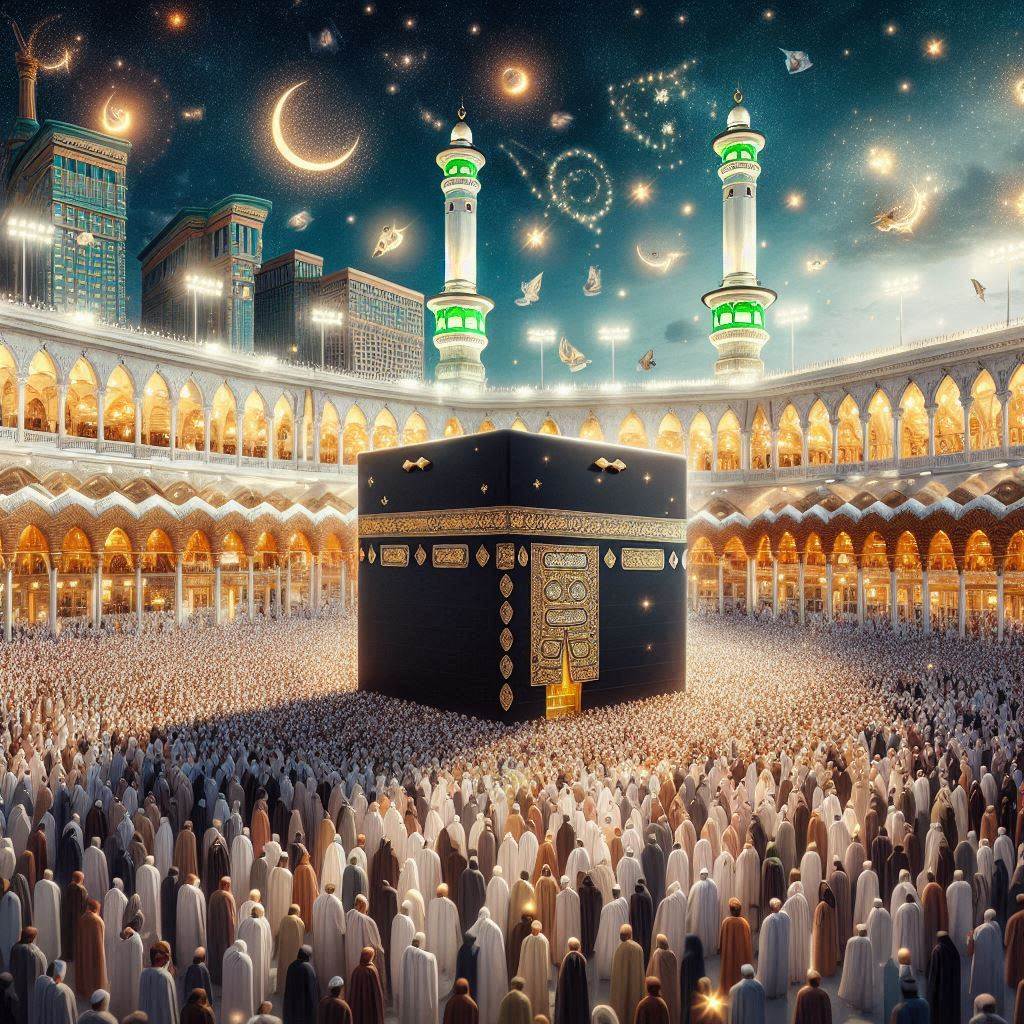Id el Kabir: A Comprehensive Guide to the Upcoming Festival
Id el Kabir, also known as Eid al-Adha or the Festival of Sacrifice, is one of the most significant Islamic holidays celebrated by Muslims worldwide

Id el Kabir, also known as Eid al-Adha or the Festival of Sacrifice, is one of the most significant Islamic holidays celebrated by Muslims worldwide. The festival commemorates the willingness of Prophet Ibrahim (Abraham) to sacrifice his son Ismail (Ishmael) as an act of obedience to God. However, God provided a ram to sacrifice instead, symbolizing mercy and faith.
When is Id el Kabir?
Id el Kabir is observed annually on the 10th day of Dhu al-Hijjah, the last month of the Islamic lunar calendar. The exact date varies each year based on the sighting of the moon, but it typically falls approximately 70 days after Eid al-Fitr, which marks the end of Ramadan. For the upcoming festival, the specific date will be confirmed closer to the event based on the lunar calendar.
The Significance of Id el Kabir
Id el Kabir holds profound religious and cultural significance for Muslims. It serves as a reminder of Ibrahim's unwavering faith and devotion to God, and it underscores the values of sacrifice, charity, and community solidarity. The festival also coincides with the Hajj pilgrimage, which is one of the Five Pillars of Islam, undertaken by millions of Muslims who travel to Mecca.
Traditions and Practices
1. Ritual Sacrifice: Central to the celebration of Id el Kabir is the ritual sacrifice of an animal, usually a sheep, goat, cow, or camel. This act symbolizes Ibrahim's sacrifice and demonstrates a Muslim's willingness to give up some of their own bounties to share with those less fortunate. The meat from the sacrificed animal is typically divided into three parts: one-third for the family, one-third for relatives and friends, and one-third for the needy.
2. Prayer Services: The day begins with a special prayer service held at mosques and prayer grounds. These congregational prayers, known as Salat al-Eid, include a sermon (khutbah) that highlights the significance of the festival and the virtues of sacrifice, patience, and charity.
3. Charity and Giving: Charity, or sadaqah, is a fundamental aspect of Id el Kabir. Muslims are encouraged to give generously to those in need, ensuring that everyone can partake in the celebrations. This act of giving fosters a sense of community and support among Muslims.
4. Feasting and Socializing: After the prayers and the ritual sacrifice, families and friends gather to enjoy festive meals. Traditional dishes vary by region but often include sumptuous preparations of the sacrificial meat, rice dishes, and an array of sweets and desserts. This is a time for joyous socialising and bonding.
5. New Clothes and Decorations: Wearing new or best clothes is a common practice during Id el Kabir. Homes and mosques are often decorated to reflect the festive spirit of the occasion. In many cultures, henna designs are applied, particularly on women and children.
Preparation for Id el Kabir
Preparation for Id el Kabir involves both spiritual and practical aspects. In the days leading up to the festival, Muslims engage in additional prayers, fasting, and acts of charity. Families also make practical arrangements, such as purchasing the animal for sacrifice, cleaning and decorating their homes, and planning the festive meals.
Cultural Variations
While the core rituals of Id el Kabir remain consistent, cultural variations exist in how the festival is celebrated across different countries and regions. For example:
- In Saudi Arabia: The festival is marked by grand celebrations, especially in Mecca, where pilgrims perform the rites of Hajj. The government also organises large-scale public sacrifices, with the meat distributed to the needy.
- In Egypt: The festival is marked by communal prayers and elaborate feasts. Streets are often decorated with lights and banners, and it's common to see temporary stalls selling sweets and toys. Many Egyptians use this opportunity to visit family and exchange gifts.
- In Turkey: Id el Kabir is known as Kurban Bayramı. The celebration includes traditional dishes such as kebabs, and special attention is given to ensuring the meat reaches those in need. Turkish families often take this time to travel and reconnect with relatives.
- In Pakistan: The day starts with special prayers followed by the ritual sacrifice. The meat is shared among family, friends, and the poor, with large quantities donated to charity organizations. It is also customary to visit graves of loved ones and offer prayers for their souls.
- In Nigeria: Known as “Sallah” in Nigeria, Id el Kabir is celebrated with vibrant cultural displays, music, dance, and communal feasting. Traditional attire and elaborate henna designs are also popular.
- In Indonesia: The festival, called “Hari Raya Idul Adha,” includes a series of religious services, communal prayers, and the widespread distribution of sacrificial meat. Local customs and traditional foods add a unique flavour to the celebrations.
Modern Influences
In recent years, Id el Kabir celebrations have adapted to modern times while preserving their traditional essence. Social media and technology have enabled Muslims to share their experiences and connect with loved ones across the globe. Additionally, online platforms facilitate charitable donations, making it easier for Muslims to contribute to causes and support those in need.
Conclusion
Id el Kabir is a profound and joyous occasion that brings Muslims together in faith, community, and generosity. It is a time to reflect on the values of sacrifice and compassion, to strengthen familial and communal bonds, and to extend a helping hand to those less fortunate. As Muslims around the world prepare to celebrate this upcoming Id el Kabir, they do so with a renewed sense of purpose and a commitment to the principles that define their faith.
About the Creator
Enjoyed the story? Support the Creator.
Subscribe for free to receive all their stories in your feed. You could also pledge your support or give them a one-off tip, letting them know you appreciate their work.





Comments
There are no comments for this story
Be the first to respond and start the conversation.